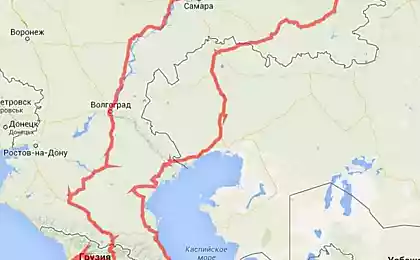750
We are 7 billion people (17 photos)
According to UN estimates, during the week, October 31, 2011, world population will reach 7 billion. Total 200 years ago, there was only 1 billion people on the planet, and for the next 150 years, this figure increased to 3 billion ... But in the last 50 years the world population has more than doubled, and is projected to grow to 15 billion by 2100 . According to the UN, is to increase the rate of change brings with it enormous challenges.
Meeting the basic needs of the count of the population of the planet will be the main challenge in the 21st century.
Crossroads at rush hour in Taipei, 29 October 2009. On the roads of this city of more than 8, 8 million motorcycles and 4, 8 million. Machines.
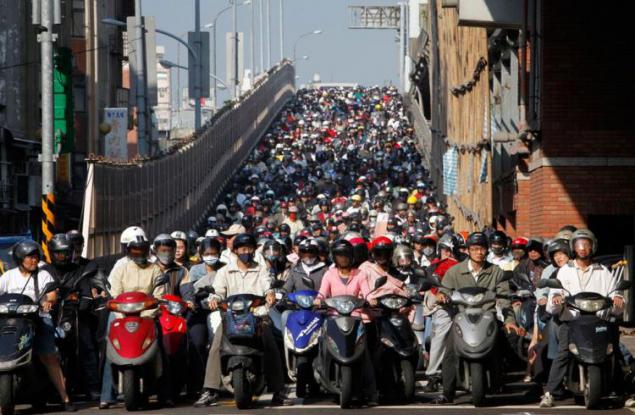
In 2010-2050 years half the world's population growth will provide a total of 9 countries, including India, Pakistan, Nigeria, the Democratic Republic of Congo, Tanzania and Bangladesh. However, this "nine" will include the United States and China.
Gestures child in the first minutes after birth in the pediatric department at the hospital Escuela in Tegucigalpa, Honduras, 21 October 2011. Approximately 220,000 children are born each year in Honduras, and the cost of giving birth in a public hospital, is $ 10

Against the background of population growth in poor countries, the rich countries 'age' - is gradually increasing the proportion of older people and the number of young people, on the contrary, decreases. Russia's population is aging, and - over the last 20 years, the average age increased from 34.9 years to 38.5.
Populated areas in West Delhi, India, a top view using Google Earth
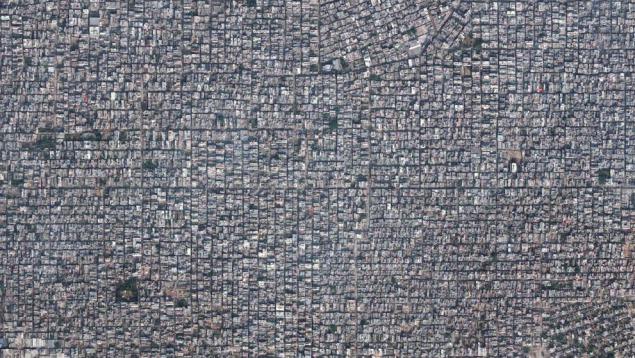
Zion Family members pose for a group photo in the village Baktawng in the northeastern Indian state of Mizoram, 7 October 2011. Zion is the head of a religious sect called the "Chana", which allows polygamy and was founded by his father Khan in 1942. Ziona has 39 wives, 94 children and 33 grandchildren. He lives in the 100 four-bedroom houses with 181 members of his family.
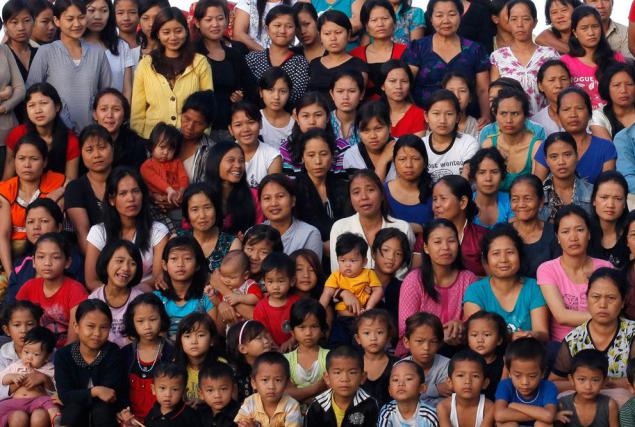
In 30-40 years the company developed country will look like: a little young, almost no children, about the same - people of middle age. With age, there is an overwhelming predominantly female, the women are busy almost all senior positions in the government.
Deforestation in Sumatra. Indonesia and Australia launched a $ 30 million project to combat deforestation in Sumatra as part of efforts to reduce greenhouse gas emissions.
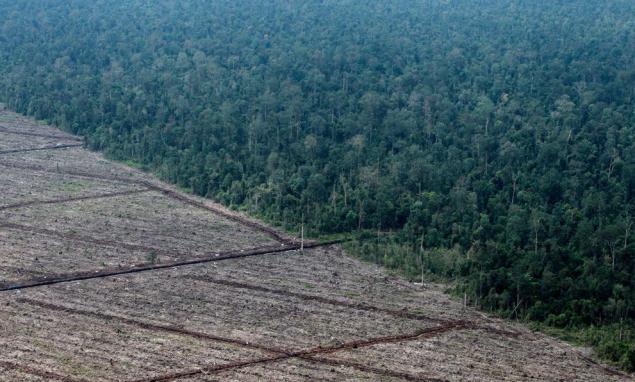
Increasing the speed of fertility brings big problems in the form of shortages of food and other resources.
Apartment building in Poland Lam in Hong Kong, 14 September 2011. This southern Chinese city forest of high-rise commercial and residential towers. About 25 percent of the tallest buildings in the area are

A group of mostly single men posing for photos in a remote village Siyani, about 140 km (86 miles) west of the capital Ahmedabad in Gujarat, India, October 5, 2011. The village has about 350 unmarried men over the age of 35 - and a few hundred up to 35 years. Women for marriage there, many of them fled to the cities in search of money and a better life.
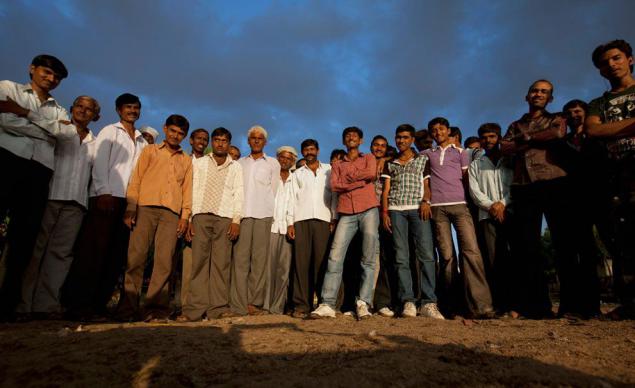
Cars on the streets in the area of Mong Kok in Hong Kong, October 4, 2011. Mong Kok has the highest population density in the world, with 130 thousand per square kilometer.

Fertility strongly affect religious traditions regardless of which God is worship. The higher the religiosity, the higher birth rate.
Overcrowding in the maternity ward at Memorial Hospital in Manila, Philippines.

Fertility drops dramatically when the "weak" sex business out there (work, career, etc.). This is typical of developed countries. In the meantime, women are "in the kitchen", saved many children.
Slums in Mumbai, India, twilight October 9, 2011. The second most populous country with 1, 2 billion people, India is expected to overtake China by 2030, when its population will soar to about 1, 6 billion dollars.
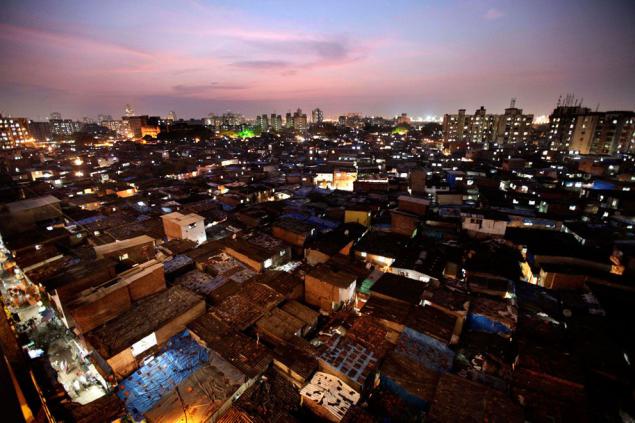
Expansion of the camp in Dadaab, near the Somali border in Kenya July 31, 2011 goda.V result of drought and conflict in southern Somalia continues a serious food crisis.
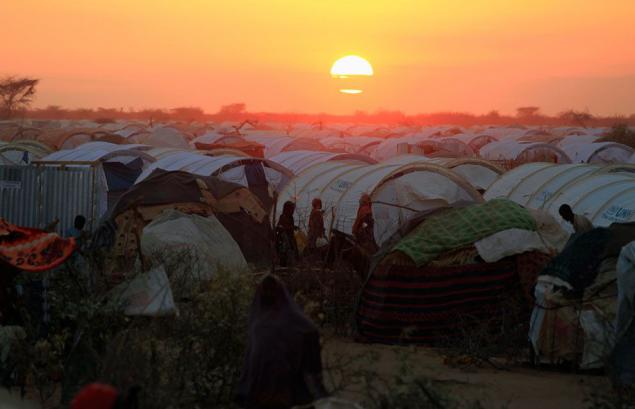
Freight train on the border of Kenya and Uganda railway line passes through the slums of Kibera, one of the largest and poorest slum in Africa
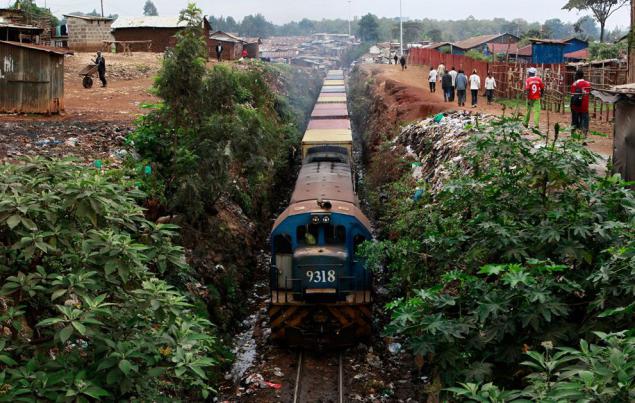
India is experiencing a shortage of drinking water. The queue at the huge pit, the Indian state of Gujarat.
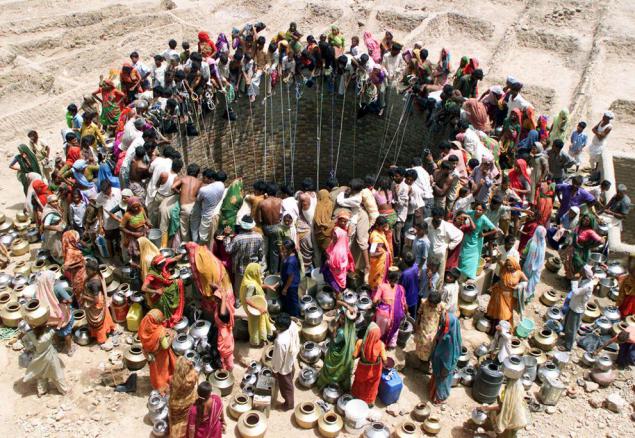
Workers collect tons of floating debris from the Three Gorges Reservoir area in Yunyang County, China
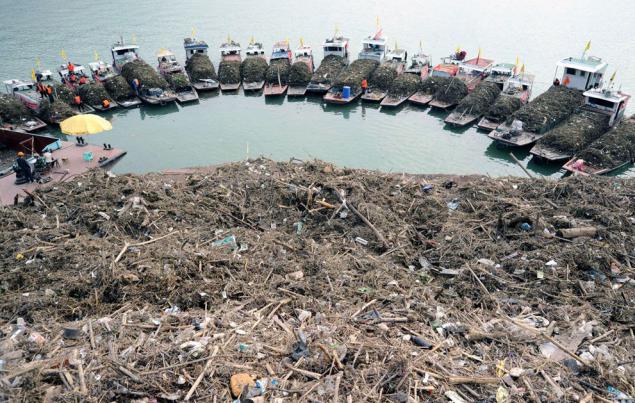
China - the first largest country on the planet. It is home to 1,217,957,000 people (October 24, 2011, 19.45% of the population).
A huge crowd at the pool, Suining, China, July 4, 2010 ...

Along with the growth of the world population, the process of urbanization - increasing the role of cities.
Favela Joaquim de Queiroz, a hillside neighborhood of Rio de Janeiro, Brazil
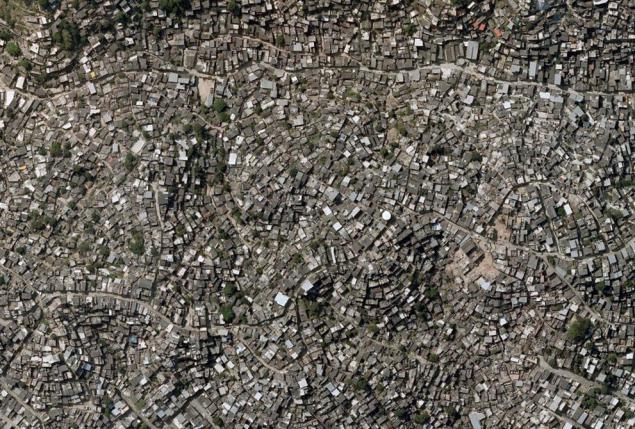
Thousands of Bangladeshi Muslims stormed the already crowded poezdad, they are trying to return home after attending a three-day Islamic holiday on the banks of the river Turag in Tongi, outskirts of Dhaka, Bangladesh
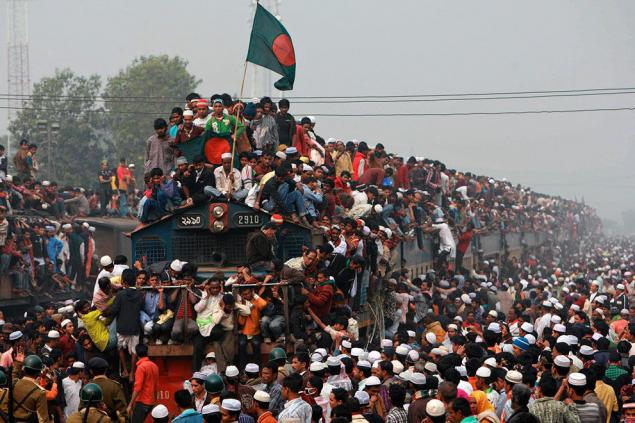
Source
Meeting the basic needs of the count of the population of the planet will be the main challenge in the 21st century.
Crossroads at rush hour in Taipei, 29 October 2009. On the roads of this city of more than 8, 8 million motorcycles and 4, 8 million. Machines.

In 2010-2050 years half the world's population growth will provide a total of 9 countries, including India, Pakistan, Nigeria, the Democratic Republic of Congo, Tanzania and Bangladesh. However, this "nine" will include the United States and China.
Gestures child in the first minutes after birth in the pediatric department at the hospital Escuela in Tegucigalpa, Honduras, 21 October 2011. Approximately 220,000 children are born each year in Honduras, and the cost of giving birth in a public hospital, is $ 10

Against the background of population growth in poor countries, the rich countries 'age' - is gradually increasing the proportion of older people and the number of young people, on the contrary, decreases. Russia's population is aging, and - over the last 20 years, the average age increased from 34.9 years to 38.5.
Populated areas in West Delhi, India, a top view using Google Earth

Zion Family members pose for a group photo in the village Baktawng in the northeastern Indian state of Mizoram, 7 October 2011. Zion is the head of a religious sect called the "Chana", which allows polygamy and was founded by his father Khan in 1942. Ziona has 39 wives, 94 children and 33 grandchildren. He lives in the 100 four-bedroom houses with 181 members of his family.

In 30-40 years the company developed country will look like: a little young, almost no children, about the same - people of middle age. With age, there is an overwhelming predominantly female, the women are busy almost all senior positions in the government.
Deforestation in Sumatra. Indonesia and Australia launched a $ 30 million project to combat deforestation in Sumatra as part of efforts to reduce greenhouse gas emissions.

Increasing the speed of fertility brings big problems in the form of shortages of food and other resources.
Apartment building in Poland Lam in Hong Kong, 14 September 2011. This southern Chinese city forest of high-rise commercial and residential towers. About 25 percent of the tallest buildings in the area are

A group of mostly single men posing for photos in a remote village Siyani, about 140 km (86 miles) west of the capital Ahmedabad in Gujarat, India, October 5, 2011. The village has about 350 unmarried men over the age of 35 - and a few hundred up to 35 years. Women for marriage there, many of them fled to the cities in search of money and a better life.

Cars on the streets in the area of Mong Kok in Hong Kong, October 4, 2011. Mong Kok has the highest population density in the world, with 130 thousand per square kilometer.

Fertility strongly affect religious traditions regardless of which God is worship. The higher the religiosity, the higher birth rate.
Overcrowding in the maternity ward at Memorial Hospital in Manila, Philippines.

Fertility drops dramatically when the "weak" sex business out there (work, career, etc.). This is typical of developed countries. In the meantime, women are "in the kitchen", saved many children.
Slums in Mumbai, India, twilight October 9, 2011. The second most populous country with 1, 2 billion people, India is expected to overtake China by 2030, when its population will soar to about 1, 6 billion dollars.

Expansion of the camp in Dadaab, near the Somali border in Kenya July 31, 2011 goda.V result of drought and conflict in southern Somalia continues a serious food crisis.

Freight train on the border of Kenya and Uganda railway line passes through the slums of Kibera, one of the largest and poorest slum in Africa

India is experiencing a shortage of drinking water. The queue at the huge pit, the Indian state of Gujarat.

Workers collect tons of floating debris from the Three Gorges Reservoir area in Yunyang County, China

China - the first largest country on the planet. It is home to 1,217,957,000 people (October 24, 2011, 19.45% of the population).
A huge crowd at the pool, Suining, China, July 4, 2010 ...

Along with the growth of the world population, the process of urbanization - increasing the role of cities.
Favela Joaquim de Queiroz, a hillside neighborhood of Rio de Janeiro, Brazil

Thousands of Bangladeshi Muslims stormed the already crowded poezdad, they are trying to return home after attending a three-day Islamic holiday on the banks of the river Turag in Tongi, outskirts of Dhaka, Bangladesh

Source























